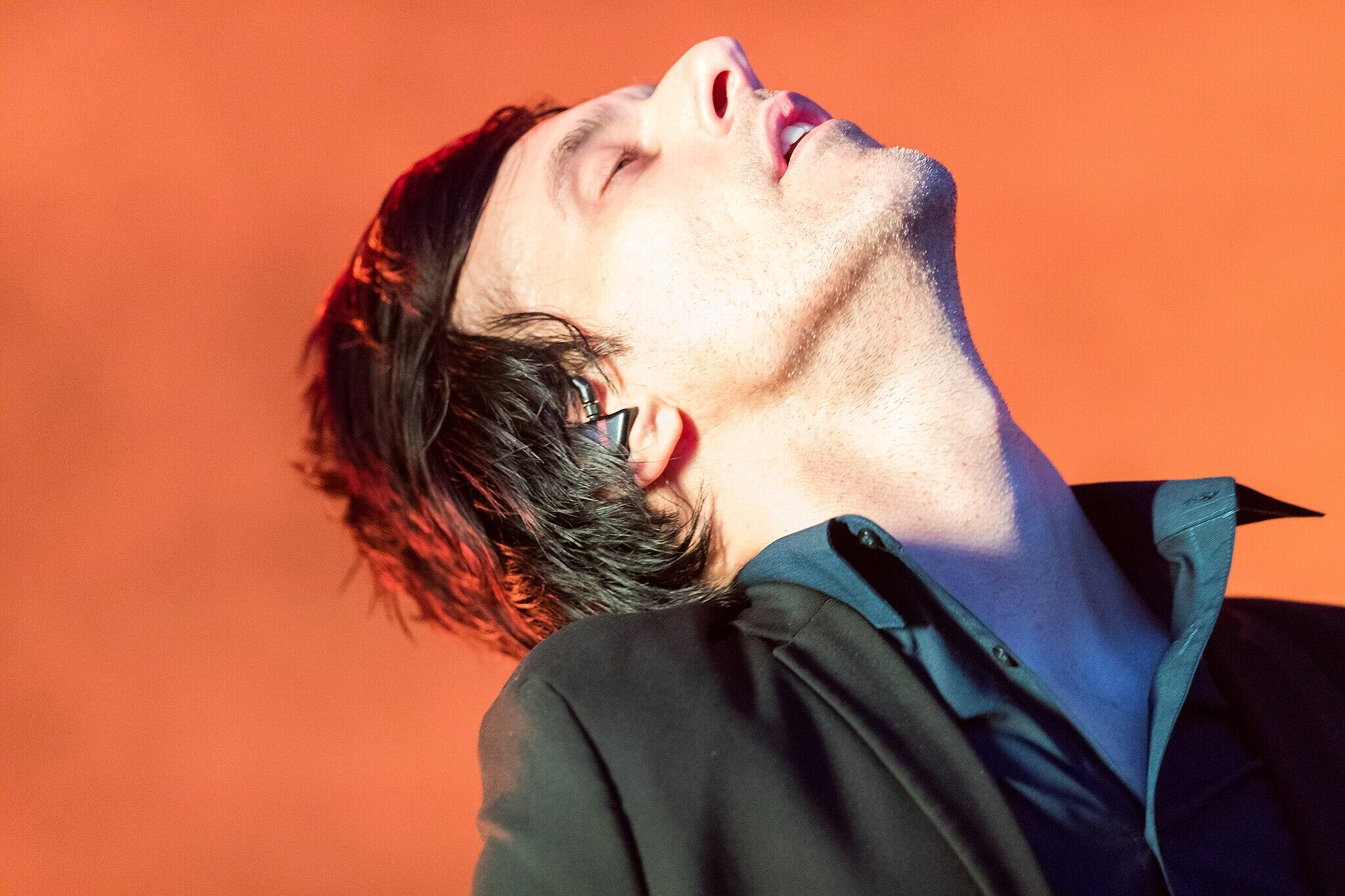The 2000s saw a diverse explosion of rock, with bands blending genres, pushing creative boundaries, and delivering some of the decade’s most memorable hits in all of music. Carrying rock traditions from the previous few decades, the abundance of new rockstars in the 00s meant a wide variety of sounds were being produced. Here are 20 of just some of the most influential rock bands of the 2000s.
| Band | Genre | Top Album |
|---|---|---|
| Linkin Park | Nu-Metal / Alternative Rock | Hybrid Theory (2000) |
| Green Day | Punk Rock / Alternative Rock | American Idiot (2004) |
| The White Stripes | Garage Rock / Blues Rock | Elephant (2003) |
| The Strokes | Garage Rock Revival / Indie Rock | Is This Is (2001) |
| Foo Fighters | Alternative Rock / Post-Grunge | Echoes, Silence, Patience & Grace (2007) |
| My Chemical Romance | Emo / Alternative Rock | The Black Parade (2006) |
| Arctic Monkeys | Indie Rock / Garage Rock Revival | Whatever People Say I Am, That's What I'm Not (2006) |
| Muse | Alternative Rock / Progressive Rock | Black Holes and Revelations (2006) |
| The Killers | Indie Rock / New Wave | Hot Fuss (2004) |
| Slipknot | Nu-Metal / Heavy Metal | Iowa (2001) |
| Kings of Leon | Southern Rock / Alternative Rock | Only by the Night (2008) |
| Coldplay | Alternative Rock | A Rush of Blood to the Head (2002) |
| Deftones | Alternative Metal / Nu-Metal | White Pony (2000) |
| Avenged Sevenfold | Heavy Metal / Hard Rock | City of Evil (2005) |
| Paramore | Pop Punk / Alternative Rock | Riot! (2007) |
| Panic! At the Disco | Alternative Rock / Pop Punk | A Fever You Can't Sweat Out (2005) |
| LCD Soundsystem | Dance-Punk / Electronic Rock | Sound of Silver (2007) |
| Modest Mouse | Indie Rock | Good News for People Who Loe Bad News (2004) |
| A Perfect Circle | Alternative Metal / Progressive Rock | Thirteenth Step (2003) |
| Good Charlotte | Pop Punk / Alternative Rock | The Young and the Hopeless (2002) |

Linkin Park
Linkin Park’s debut Hybrid Theory (2000) was a game-changer, blending rock, hip-hop, and electronic elements in a fresh, new way. The album sold over 27 million copies, driven by songs like In the End and Crawling. The intriguing nu-metal style combined with the vocal talents of both Bennington and Shinoda created a new aesthetic that captured audiences.
Green Day
Green Day, already well-known from the 90s, reinvented themselves with American Idiot (2004), a politically charged rock opera that won multiple awards. Hits like Boulevard of Broken Dreams and Holiday brought them even more fame and cultural impact. Their ability to evolve while staying true to their punk roots kept them among the best groups in rock.
The White Stripes
With their stripped-down sound and striking red, white, and black aesthetic, The White Stripes broke through with White Blood Cells (2001). Seven Nation Army became an iconic rock anthem for the ages, solidifying Jack and Meg as one of the most innovative duos of the era. Their low-fidelity recording techniques brought their garage and blues rock sounds to new levels.
The Strokes
The Strokes brought raw energy back to the scene with Is This It (2001), an album that helped define the indie rock movement. Songs like Last Nite and Someday showcased their effortless cool and catchy melodies. Their rise to fame was rewarded with international recognition and many awards.
Foo Fighters
Foo Fighters dominated the 2000s with albums like In Your Honor (2005) and Echoes, Silence, Patience & Grace (2007). The Pretender and Best of You became massive hits. Their reputation as one of rock’s most consistent and energetic live bands across the decades only grew stronger.
My Chemical Romance
MCR broke out with Three Cheers for Sweet Revenge (2004), but The Black Parade (2006) made them icons. Their theatrical style, deeply emotional lyrics, and anthems like Welcome to the Black Parade captured the spirit of a generation. MCR pioneered emo and alternative rock music, establishing themselves as the best in the genre.
Arctic Monkeys
Arctic Monkeys stormed onto the scene with Whatever People Say I Am, That’s What I’m Not (2006), one of the fastest-selling debut albums in UK history. Songs like I Bet You Look Good on the Dancefloor showed their sharp, witty lyrics and energetic sound. Bands at this time had an unprecedented opportunity: to rely on internet streaming rather than radio to get noticed. Knowing this, the Arctic Monkeys didn’t cater their music to be “radio-friendly” and were one of the first groups to gain a wider audience through word-of-internet.
Muse
Muse gained recognition with Origin of Symmetry (2001), but Black Holes and Revelations (2006) pushed them into global stardom. Their dramatic, symphonic sound, highlighted in hits like Starlight and Knights of Cydonia gave them a unique edge. Heavier tracks like Supermassive Black Hole satisfied thrash cravings for a new generation.
The Killers
The Killers became instant stars with Hot Fuss (2004), featuring hits like Mr. Brightside and Somebody Told Me. Over time, they cemented themselves as festival headliners and one of the best rock bands of the 2000s. Their many successful singles and albums have received many awards, including multiple platinum certifications.

Slipknot
Slipknot’s aggressive music style and masked stage personas made them one of the most unique metal bands of the decade. Iowa (2001) confirmed their rock legend status, with brutal tracks like People = Shit. Slipknot’s raging tracks and performances were perfect for metal fans who like to be angry.
Kings of Leon
Starting as a raw Southern rock band, Kings of Leon reached massive success with Only by the Night (2008). The album featured Sex on Fire and Use Somebody, earning them Grammy Awards. Their evolution from gritty garage rock to stadium anthems made them one of the biggest rock bands of the 2000s.
Coldplay
Coldplay’s 2000 debut Parachutes set the stage for their rise, but it was A Rush of Blood to the Head (2002) that solidified them as one of the most popular rock bands 2000s. Hits like Clocks and The Scientist captivated listeners with their unique atmospheric sound. Also setting them apart from many other groups was the crew's decision to ban its members from using hard drugs, a move that would have been unheard of in the height of 70s rock.
Deftones
After already achieving fame in the 90s, Deftones struck gold again with their third album White Pony (2000). The collection introduced fans to a more atmospheric sound, with hits like Change (In the House of Flies). Deftones pushed nu-metal’s boundaries, adding shoegaze and experimental elements to the mix.
Avenged Sevenfold
Blending metalcore with classic rock influences from the 80s, Avenged Sevenfold found mainstream success with City of Evil (2005). Bat Country showcased their intricate guitar work and hardcore vocal styling. Drummers need to have the best skills possible to execute A7X songs. Notably, the band participated in the Take Action Tour in 2003 to help prevent teen suicides, inspired by a tragic attempt by one of the band members.
Paramore
Led by Hayley Williams, Paramore burst onto the scene with Riot! (2007), featuring Misery Business. Probably the youngest group to form a band on this list, the original lineup of members came together in 2004, when Williams was just 15. The band gained recognition from playing events like Warped Tour, driving up anticipation for their musical releases.
Panic! At the Disco
Panic! At the Disco’s theatrical debut, A Fever You Can’t Sweat Out (2005), introduced fans to their unique blend of cabaret and pop-punk. I Write Sins Not Tragedies became a massive superhit that changed the face of music, especially pop-punk and emo. Whether you like their sound or not, they’re surely one of the most iconic rock bands from the 2000s.
LCD Soundsystem
LCD Soundsystem combined rock with electronic music, creating danceable yet deeply emotional tracks. Their quirky approach to music led to songs like Daft Punk Is Playing at My House and a near 46-minute-long composition piece. Sound of Silver (2007) featured the critically acclaimed track All My Friends.
Modest Mouse
Modest Mouse had a cult following before Good News for People Who Love Bad News (2004) propelled them to mainstream success. Float On became an unlikely hit, earning them widespread recognition. The band’s interesting musical style set them apart from other groups at the time.
A Perfect Circle
Supergroup A Perfect Circle, led by Tool’s Maynard James Keenan, delivered a unique take on alternative metal. Their 2000 debut Mer de Noms featured Judith, which became a favorite for hard rock fans. The band’s music has been described as an expression of “operatic angst,” which was a prevalent theme in music culture at the time.
Good Charlotte
Good Charlotte gained mainstream attention with The Young and the Hopeless (2002), featuring the hits Lifestyles of the Rich & Famous and The Anthem. Their energetic sound and relatable lyrics made them a staple of 2000s punk rock. The band’s involvement in projects like a music video with the American Foundation for Suicide Prevention has made them into a cultural touchstone, especially for the teens who grew up with them.
Looking at the array of rock music in the 2000s, it’s almost unrecognizable from rock’s beginnings in the 60s! As with any other music genre, rock evolves with the creators, fans, and cultural zeitgeist of the times. These artists laid another layer of foundation down for future artists to explore even more genres and subgenres.
Summarize with AI:















